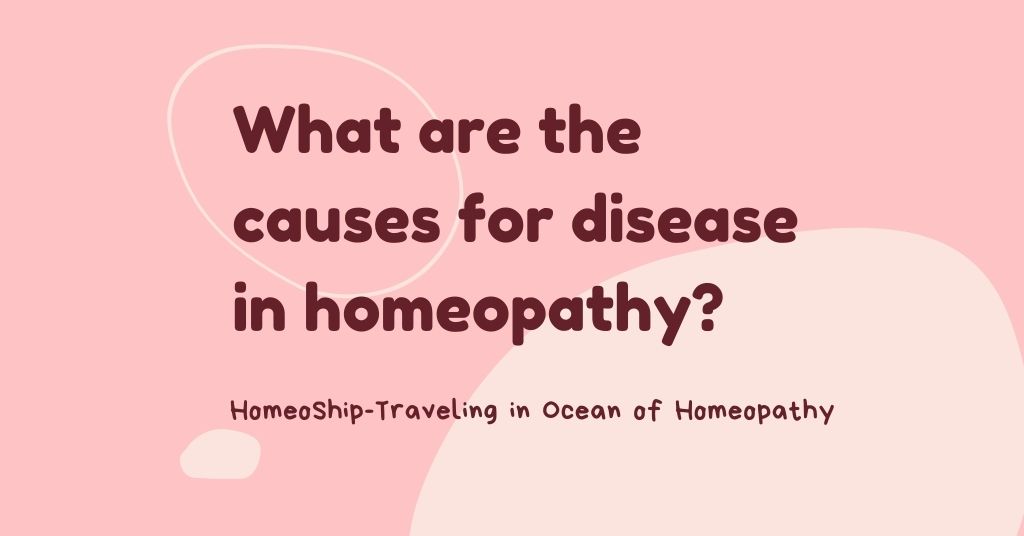Contents
Idiosyncrasy is the peculiar corporeal constitutions that although otherwise healthy, possess the disposition to be brought into a more or less morbid state by certain things that seem to produce no impression and no change in many other individuals. The word “idio” means “one’s own”, “syn” means “along with” and “crasy” means “constitution”.
Idiosyncrasy is the person’s own peculiar personality. During drug proving, few symptoms of the drug are constantly produced by the majority of the provers, but only a few rare symptoms along with the other symptoms are produced by very few provers. This group of the provers is called the idiosyncratic personalities by Hahnemann. This ability of a person to produce rare symptoms which other provers could not produce depends upon the level of susceptibility of that individual.
Example of idiosyncrasies
1. Few persons faint by the smell of roses.
2. Few persons get more abnormal morbid and even morbid dangerous states by mussels (a type of shellfish), crabs, and roe (the eggs or sperms of fish).
3. Some persons develop abnormal sensations and morbid states by touching leaves of some kind of sumach. This ability to produce rare and uncommon symptoms by few provers depends not only upon the inherent sick-making capacity of the drug substance but also on the reactive capacity of the vital force of the prover.
Types of Idiosyncrasy
1. Inherited
2. Acquired
Both the inherited and the acquired idiosyncrasies may be because of various causes. Any history of abuse of drugs by the patient or suppression of mental or physical morbid conditions may play a major role in the development of idiosyncratic personalities. Idiosyncrasy can be traced by enquiring about the patient’s past history, any incidence of poisoning, the abuse of some drugs, etc.
Modern understanding also makes it clear that when a person is poisoned by one drug substance, he will remain hypersensitive to the same substance in the later years of his life. Modern medicine calls this the anaphylactic reaction or the hypersensitive reaction. Observations of some physicians suggest that badly treated or suppressed acute diseases can contribute in the later years to the development of idiosyncratic personalities. But the homeopathically treated cases will never develop into such abnormal conditions.
Importance of Idiosyncrasy In Therapeutics
The peculiar reactive tendencies of idiosyncratic personalities help us in the in-depth study of the pathogenetic powers of the drugs. Even the rare symptoms which are not usually produced in the regular provers can be noticed in idiosyncratic persons.
H.A.Roberts says, “Idiosyncratic are the good provers for the drugs for which they are idiosyncratic”.
Idiosyncrasy helps the physician in studying the peculiar sick-making properties of the drugs. A physician can use such medicines in all patients for curative purposes.
Few noteworthy incidents:
1. Princess Maria restored her brother, the emperor Alexis, who suffered from fainting by sprinkling with rose water in the presence of his aunt Eudoxia.
2. Horsitus saw greater benefit from rose vinegar in case of syncope.
3. J.H.Clarke in his “Homeopathy explained” gives a beautiful example of a highly sensitive person called “Casper Hauser”. This case, in fact, was published by Dudgeon in the October 1897 issue of the “Homeopathic world”.
Casper Hauser was an extremely sensitive, mysterious, and unfortunate person. Throughout his life, he had to survive on black bread and water, as he developed a lot of problems like diarrhea, breathlessness, etc from any other food substance. He spent most of his time in dark and segregated areas because bright light and loud noises painfully affected him. He was so sensitive that he could distinguish colors even in dark. Perfumes could bring convulsive attacks on him. Dr. Preu, an eminent homeopath, used to treat his health problems with homeopathic medicines in the olfactory method because oral intake of the minutest dose of medicines brought aggravations.
Only idiosyncratic can produce the peculiar, individualistic symptoms of the drugs in proving. Hence, the study of the entire pathogenetic power of the drug and the study of the drug picture of the drug becomes complete. These types of symptoms will help the physicians in unlocking the cases where individualization is difficult. Only such peculiar symptoms will help in finalizing and selecting the similimum. Treatment According to one group of homeopaths, if one person is found to be idiosyncratic to one substance, the same substance in high potencies can be used to cure the idiosyncratic.
Dr. J.H.Allen does not consider idiosyncratic as healthy personalities. According to him psora and tubercular miasms are responsible for such peculiar corporeal constitutions. He recommends anti-miasmatic drugs to such people.
Kent’s Views on Idiosyncrasy
Kent defines idiosyncrasy as “an (oversensitiveness) to one thing or few things”. Idiosyncrasy is different from the general susceptibility in feeble constitutions or patients who are susceptible to all things. The oversensitivity in a patient is an essential status. If the idiosyncrasy to the prescribed remedy is not present, the patient will not be susceptible enough to be cured.
Kent recognizes two types of idiosyncrasies, acute and chronic.
“A chronic idiosyncrasy is from chronic miasm and the acute idiosyncrasy is from an acute miasm”.
A person might either acquire the idiosyncrasy during his life or he may inherit it from his predecessors. Psora is at the bottom of all these troubles. Sometimes the same substance to which a person is idiosyncratic can be potentized and administered to cure this hypersensitive reaction. But the psora is in the background, so the anti-psoric treatment is compulsory.
Example: “A very potency of Rhus will sometimes remove that susceptibility and a dose of Rhus C.M or M.M will often check the acute poisoning for Rhus. But if you find that the patient has been born with sensitivity to Rhus, while Rhus may palliate a few times it will finally cease to help him”. To eradicate this problem, “it requires an anti-psoric to get to the bottom of it”.
Must Read:
Idiosyncrasy vs Allergy
The terms idiosyncrasy and allergy overlap each other. Different opinions have been expressed by different homeopaths on this subject. Allergy is the recent subject of the dominant medical school. The concept is more related to the immunological hypersensitivity reaction whereas, idiosyncrasy is a homeopathic concept developed by pure clinical observations of individual personalities.
Allergy: The oxford medical dictionary defines an allergy as, “an immunological response in a susceptible person on exposure to an allergen”. Microbiology defines an allergy as, “the hypersensitive reaction of the host to an antigen, it can be an either protective or injurious immune response”. For example, some persons develop urticarial rashes on taking fish since they are allergic to fish.
The two terms allergy and hypersensitivity seem almost alike but a slight difference still exists. Idiosyncrasy can be defined as the individualistic hypersensitive reaction of the person.
Example: Rama, Sita, and Shyam all are allergic to fish. But their individualist hypersensitive reactions to the fish differ from person to person. Rama develops urticarial rashes on taking fish, Sita develops breathlessness, and Shyam develops diarrhea on taking fish. So all are allergic to fish but their individualistic response to fish is different


